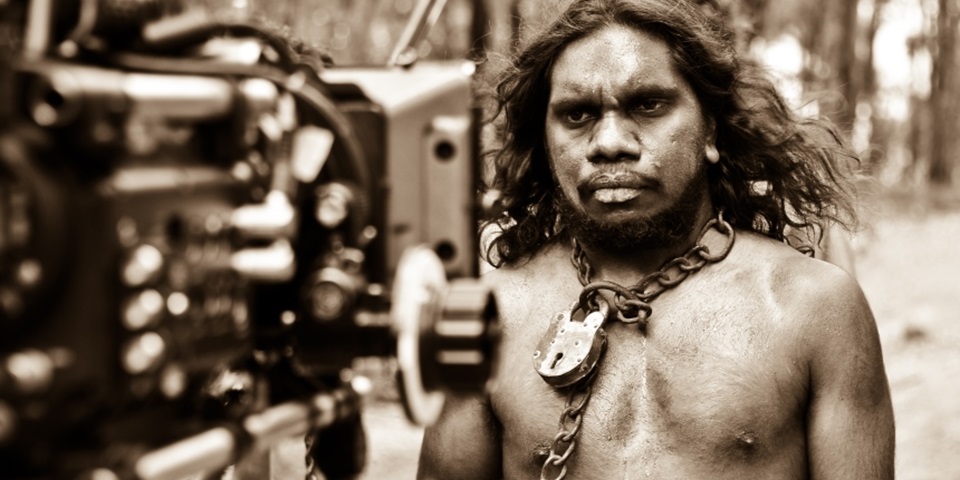Opinion
Rottnest a location for reflecting on history of Indigenous imprisonment

Film producer Dr Glen Stasiuk discusses his reasons for telling the truth about the history of Rottnest or Wadjemup.
When people ask me why I chose Wadjemup, or Rottnest Island, as the research topic of my PhD, I am always drawn back to the same response: “Because I wanted to make a difference on the island and highlight its hidden history so that future generations – including my own koolungah (children) – can know the truth of the Island…”
Then, inevitably the same question is asked again: “What is the truth about the island?”
Wadjemup is the name given to Rottnest Island by the Whadjuk Noongar people, the traditional custodians of the island and its associated waters. It is Western Australia’s premier tourist destination, with nearly 650,000 people visiting the iconic island in 2017, with about a third coming from either interstate or overseas to swim in its pristine blue water, enjoy a leisurely drink in its hotel or take a ‘selfie’ with the local indigenous fauna – the quokka.
However, what many of these visitors are unaware of is that from 1838 to 1931, around 3,700 Aboriginal men and boys from across Western Australia were sent to the island for mostly minor offences. They experienced appalling conditions and treatment, with at least 370 dying during their incarceration due to disease, degradation and the hangman’s noose.
This makes Rottnest the site of the largest numbers of deaths in custody in Australia. Thus, Wadjemup/Rottnest Island is truly unique.
On the one hand, the Aboriginal history of the island harshly embodies the worst aspects of European colonisation and on the other hand, it also represents many values seen as quintessentially Australian: the outdoors, the ocean, and a shared enjoyment of relaxing and recreation. This contradiction is described by the title of my film – Wadjemup: Black Prison – White Playground.
I collaborated with award-winning Murdoch University media producer - Jeff Asselin - between 2011-2014 to produce and write this docu-drama, which aimed to pursue social justice and raise awareness about the Aboriginal history of Rottnest Island.
This Australian Research Council-funded project also enabled media students within the School of Arts to be directly involved in the production process and gain invaluable industry experience. Jeff comments that: “Working on Wadjemup was an exciting and challenging experience that ticked all the boxes for the graduate attributes that Murdoch actively fosters. The students were invaluable to the film’s success and many have gone on to become much sought-after crew members in the Australian film industry.”
Further, Asselin speaks about the pride he feels having worked on a film production that has helped promote and lobby for a mainstream acknowledgement of the Aboriginal narrative on the island, including the handing over of former site of the Aboriginal prison and further refurbishments of the burial site to the Aboriginal community.
The film’s voice expresses the potential for Wadjemup to be a national site for reconciliation and healing, something which the Rottnest Island Authority has now realised: “The unique circumstances of Wadjemup/Rottnest Island mean that it has great potential as a symbol of reconciliation between Aboriginal and non-Aboriginal Australians.”
“The site is one of very few still extant that have the same potential for truth-telling and healing and the commemoration and celebration of the lives of the community leaders who suffered and died during the clash of the Indigenous peoples and the European colonisers.”
During National Reconciliation Week in May 2017, the Rottnest Island Authority announced the work to be undertaken on the burial ground in 2018 and foreshadowed a new direction for the recognition of Wadjemup/Rottnest Island as a landmark reconciliation location. These announcements were warmly welcomed by the large numbers of Aboriginal and non-Aboriginal people present under the theme of ‘Don’t Keep History a Mystery’.
Perhaps final word should go to the current Minister for Aboriginal Affairs MLA Ben Wyatt who claims sincerely that: "Wadjemup's history should be known to all Western Australians.” I hope that via my PhD and the film – it will.
The film Wadjemup: Black Prison – White Playground is currently being screened on Rottnest Island as part of the Rottnest Island Authority Reconciliation and NAIDOC Week event commemorations.
The film is also available through on-demand platforms IndieFlix, Amazon, Vimeo On Demand and Hoopla.
Opinion
Rottnest a location for reflecting on history of Indigenous imprisonment
Posted on